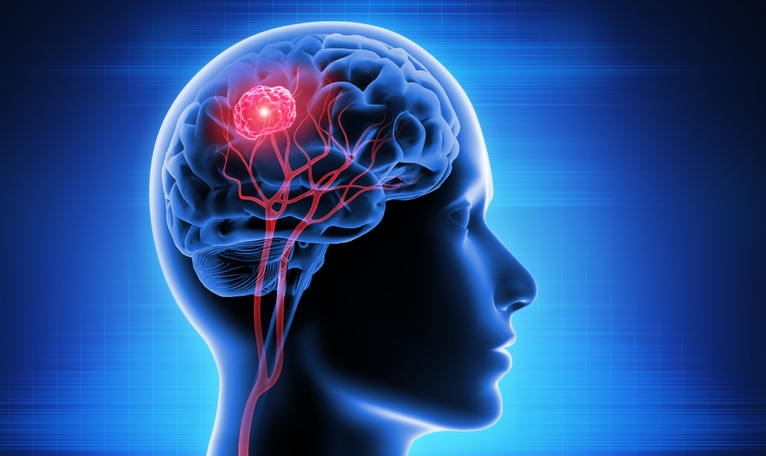A brain tumor is an abnormal growth of cells within the brain that can be either benign (non-cancerous) or malignant (cancerous). While some brain tumors may not be life-threatening, others can pose a significant risk and potentially lead to death. Understanding the symptoms, treatments, and prognosis of brain tumors is crucial for timely intervention and improved outcomes.
Can Brain Tumors Cause Death?
The question that concerns many patients and their families is: Can brain tumors cause death? The answer depends on several factors, including the type, location, and size of the tumor, as well as the patient’s overall health. Malignant tumors, such as glioblastoma, are aggressive and can lead to fatal complications if not treated promptly. Even benign tumors can be dangerous if they exert pressure on critical areas of the brain, affecting essential functions like breathing and circulation.
Symptoms of Brain Tumors
Recognizing the symptoms of brain tumors at an early stage can significantly improve the chances of successful treatment. Common symptoms include:
- Persistent Headaches: Severe and frequent headaches that worsen over time.
- Seizures: Uncontrolled movements or convulsions, often occurring without prior history.
- Vision Problems: Blurred vision, double vision, or sudden loss of sight.
- Memory Loss and Cognitive Issues: Difficulty concentrating, confusion, and personality changes.
- Nausea and Vomiting: Persistent nausea, especially in the morning, can indicate increased pressure in the brain.
- Difficulty Walking or Balance Issues: Loss of coordination and frequent falls.
- Speech and Hearing Problems: Difficulty understanding speech or sudden hearing loss.
- Weakness or Numbness: Partial paralysis or numbness in limbs, typically on one side of the body.
If you experience any of these symptoms, consulting the Best Neurologist in Jaipur is essential for accurate diagnosis and timely treatment.
Diagnosis of Brain Tumors
Diagnosing a brain tumor involves several tests, including:
- MRI and CT Scans: These imaging techniques help in identifying the size and location of the tumor.
- Biopsy: A sample of the tumor is analyzed to determine whether it is benign or malignant.
- Neurological Exam: Doctors assess motor skills, reflexes, and cognitive functions.
- Electroencephalogram (EEG): Measures electrical activity in the brain to detect abnormalities.
A comprehensive diagnosis allows the Best Neurologist in Jaipur to formulate a personalized treatment plan.
Treatment Options for Brain Tumors
The treatment approach for brain tumors depends on the type and severity of the condition. Common treatment options include:
1. Surgery
Surgical removal of the tumor is often the first line of treatment. In cases where complete removal is not possible, surgery aims to reduce the tumor size and relieve pressure on the brain.
2. Radiation Therapy
Radiation therapy uses high-energy rays to destroy tumor cells. It is often recommended after surgery to eliminate any remaining cancerous cells.
3. Chemotherapy
Chemotherapy involves the use of drugs to kill cancerous cells. It may be administered orally or intravenously, depending on the patient’s condition.
4. Targeted Therapy
This advanced treatment method focuses on attacking specific molecules in cancer cells while minimizing damage to healthy cells.
5. Immunotherapy
Immunotherapy boosts the body’s immune system to fight cancer. It is an emerging treatment option for aggressive brain tumors.
6. Palliative Care
For terminal cases, palliative care aims to improve the patient’s quality of life by managing pain and other symptoms.
Seeking guidance from the Best Neurologist in Jaipur can help determine the most effective treatment plan based on individual needs.
Prognosis and Life Expectancy
The prognosis of a brain tumor varies depending on factors such as the tumor type, location, treatment response, and overall health.
- Benign Tumors: These tumors generally have a better prognosis as they grow slowly and do not spread.
- Malignant Tumors: These tumors are aggressive, and survival rates vary depending on the stage and response to treatment.
- Glioblastoma: This is one of the most aggressive brain cancers, with a median survival rate of 12-18 months despite treatment.
- Meningiomas: These are often benign and have a high survival rate if detected early.
Regular follow-ups with the Neurologist can help monitor progress and manage complications effectively.
Preventing Brain Tumors
While there is no definitive way to prevent brain tumors, adopting a healthy lifestyle may reduce the risk:
- Avoid exposure to radiation and harmful chemicals.
- Maintain a healthy diet rich in antioxidants.
- Stay physically active and manage stress.
- Regular check-ups for early detection.
Conclusion
Can brain tumors cause death? Yes, they can, especially if left untreated or if the tumor is aggressive. However, advancements in medical science have improved treatment options, increasing survival rates. Early detection, prompt medical intervention, and consultation with the Best Neurologist in Jaipur can make a significant difference in outcomes. If you or a loved one experience symptoms, seek professional help immediately to ensure timely diagnosis and effective treatment.



